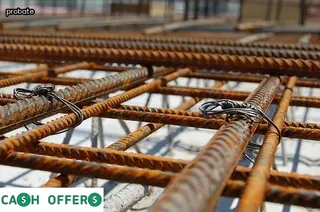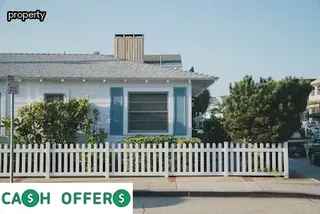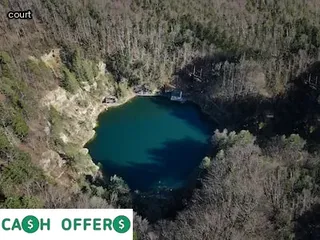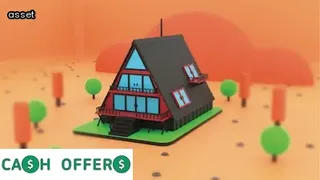In South Dakota, the probate process for selling a house is an important part of the estate planning process. Probate is a legal procedure that validates a deceased person's will and distributes their assets to their heirs.
The probate process can be complicated and requires understanding of the laws and regulations in South Dakota. In order to ensure that all of the legal requirements are met, it is important to understand what is needed for probating a will in South Dakota.
Depending on the size and complexity of the estate, some estates may need to go through multiple steps of the probate process before they are able to be sold or distributed. In any case, it is important to understand the rules that govern the sale of property in South Dakota and how they relate to each other.
In addition, it is also helpful to know where to turn if there are questions or concerns about navigating this complex process. Understanding these requirements can help make sure that everything proceeds smoothly while avoiding potential complications down the road.

Understanding the probate process for selling a house in South Dakota is an important step in ensuring that the sale of a house goes smoothly. In this state, the probate process can be lengthy and complex, depending on the situation.
Generally, it begins with filing a petition with the court to initiate probate proceedings. Afterward, a personal representative will be appointed to administer the estate.
This individual is responsible for identifying and collecting assets, notifying creditors of the decedent's death, paying any outstanding debts from assets of the estate, and filing tax returns and other necessary paperwork. The next step involves distributing assets as outlined by law or according to instructions in a valid will.
If there is no valid will, assets will be distributed according to South Dakota's intestacy laws. Finally, once all debts have been paid and assets have been distributed appropriately, a closing statement is prepared and submitted to the court for approval before finalizing the sale of property.
When a person dies without leaving behind a will in the state of South Dakota, there are several potential consequences. This can include having their estate go through the probate process, which can be lengthy and costly.
In some cases, it may take up to two years for an estate to be processed and for assets to be distributed. Without a will, the court may decide who inherits your property and assets, which could lead to disputes among family members.
Additionally, if there is not enough money in the estate to cover debts or taxes, creditors may make claims against the deceased's property in order to receive payment. Therefore, it is important to understand the probate process when selling a house in South Dakota so that you can avoid any negative consequences of dying without a will.

Probate is the legal process of transferring ownership of a deceased person’s estate. In South Dakota, there are three types of probate proceedings that can occur when selling a house.
The first is formal probate, which is often used for more complex estates with numerous assets and debts. It's usually overseen by a judge who ensures all laws and regulations are followed throughout the process.
An informal probate proceeding is less formal than a formal hearing and takes place outside of court; however, it still requires paperwork to be completed and submitted to an executor or another appointed individual who must review the documents before they can be approved. The third type of probate in South Dakota is known as summary administration.
This type of proceeding can be used if at least four months have passed since the decedent died and only small assets remain in the estate. Summary administration does not require a court hearing, but certain documents must still be filed with the local court to transfer ownership of the property.
The probate process for selling a house in South Dakota can be complicated and time consuming. It is important to understand the time limits that are associated with completing the probate process in South Dakota.
Generally, the executor of an estate has twelve months from the date of death to settle all debts, including any taxes owed by the deceased. After this period, creditors can no longer make claims against the estate.
The executor must also submit a final accounting of the estate within six months after closing it. All of these tasks must be completed before real estate assets can be sold or transferred to heirs or beneficiaries.
In addition, there may be additional requirements depending on the size and complexity of the estate, so it is important to consult with a probate attorney who is familiar with South Dakota laws.

In South Dakota, there are certain documents that must be filed during the estate settlement process when selling a house. This includes an application for probate, a death certificate, and the names of any heirs to the property.
The executor of the estate must also submit a listing of all assets owned by the deceased at the time of death as well as an inventory and appraisal of any real property. In addition, if there are creditors listed on the will then they must be notified and provided with proof that their claims have been paid in full.
Finally, any taxes owed to the state or federal government must be addressed before the sale can go through. It is important to understand all necessary documents for estate settlement in South Dakota in order to ensure a smooth transition when selling a house.
The cost of probate in South Dakota can vary significantly depending on the size and complexity of the estate. Generally speaking, there will be fees associated with filing a petition for probate, as well as court costs and attorney fees.
Estate taxes may also come into play, although South Dakota does not have an estate tax. Other costs to consider include appraisal fees, bond premiums, and executor or administrator compensation.
Additionally, any debts owed by the deceased must be paid out of the estate before assets are distributed to beneficiaries. The amount of time it takes to complete the probate process can also affect the final cost; if it takes longer than expected, attorneys' fees may increase accordingly.
In some cases, selling a house during probate can help reduce costs; however, this is only possible if all heirs agree to the sale and there are no liens against the home.

If you are considering selling a house in South Dakota, it is important to understand the probate process. Probate is the legal process of transferring ownership of an estate after someone passes away.
In South Dakota, there are several common questions about the probate process for selling a house. Firstly, what documents are necessary to begin the probate process? You will need to provide a copy of the decedent's death certificate, as well as the original will, if one exists.
Secondly, who handles the probate process? In South Dakota, an executor must be appointed to manage the proceedings and distribute assets according to the instructions in the will. Additionally, it is important to know that South Dakota has specific rules and regulations that govern how you can transfer title during probate.
A knowledgeable attorney can help ensure that all requirements are met during this complex process. Lastly, what fees and taxes must be paid when selling a home during probate? Generally speaking, inheritance tax applies on all estates valued over $50,000 and may also be subject to state income tax or property taxes depending on where it was located when bought.
Understanding these common questions about the probate process in South Dakota can help ensure your sale goes smoothly and efficiently.
In South Dakota, small estates may be administered without going through the probate process. Small estates are those with a value under $100,000.
In addition to this exemption, some assets may also pass outside of probate if they have beneficiary designations or are owned jointly by two or more people. To determine whether an estate qualifies for a small estate administration or other exemption from probate in South Dakota, it's important to review the assets carefully and consult an experienced attorney.
In some cases, even if the total value of the estate is less than $100,000, certain assets valued over that amount may still require probate proceedings. Furthermore, real estate owned in South Dakota must go through probate regardless of its value.
Before selling a house in South Dakota inherited through an estate it's important to understand the requirements for the applicable probate process and seek advice from legal professionals as needed.

The transfer of title during the probate process in South Dakota can be a complex and confusing process. It is important to understand the steps that are involved in order to ensure that the transfer of title is legally binding and properly executed.
First, the executor of the estate must file an Application for Probate with the court. This will appoint a personal representative who will manage the estate’s assets.
The personal representative must then gather all documents necessary to prove title, such as deeds, mortgages, tax bills, and other records. The personal representative must also reach out to creditors to notify them of any outstanding debts on the property before it can be sold.
Once all debts have been cleared, the personal representative can then proceed with selling the property. In South Dakota, this includes filing a Notice of Sale with the court, obtaining an appraisal from a certified appraiser and preparing legal documents for closing.
After all steps have been completed and approval granted by the court, title can finally be transferred to its new owner.
As an Out-of-State Executor of a deceased South Dakota resident's estate, understanding the probate process for selling a house in South Dakota can be overwhelming. It is important to understand that the probate process for selling a house in South Dakota may require specialized representation and knowledge of local laws and procedures.
Depending on the size and complexity of the estate, it may be necessary to hire an attorney or other legal representative to help manage the entire process. If this is necessary, it is important to find someone who has experience in navigating the various state regulations that govern selling a house in South Dakota.
This person should also be familiar with the laws regarding executor duties, including those related to taxes and creditors' claims. Furthermore, they should understand how to properly determine heirs' rights and distribute assets according to state law.
With such knowledge and expertise, Out-of-State Executors can ensure that their loved one's wishes are respected throughout the probate process for selling a house in South Dakota.

The probate process for selling a house in South Dakota can be complicated when estates have assets both in-state and out-of-state. In these cases, it's important to understand whether or not probate is required.
Generally, if the decedent owned real estate or personal property outside of South Dakota, ancillary probate proceedings may be necessary. Depending on the value of the estate and applicable laws, some states may require a separate proceeding for each asset located in that state.
Ancillary proceedings must take place even if the bulk of the estate is located in South Dakota. Additionally, if a will was created in another state, it will usually need to be authenticated and admitted to probate court before any assets can be distributed.
With an understanding of these complexities, an executor can better prepare for the probate process and ensure that all assets are accounted for before any transactions occur.
Yes, an estate must go through probate in South Dakota when selling a house. The probate process is used to transfer legal title of the house from the deceased owner's name to the new owner's name.
This process is necessary to ensure that all debts and taxes have been paid and that the house title is legally transferred. Probate also allows for a final accounting of the estate and distribution of assets to beneficiaries according to the law.
It can be a complicated process as it involves filing paperwork with the court, including a petition for probate, inventory of assets, notice of hearing, and other documents. Additionally, creditors will be notified so that they can make claims against the estate if applicable.
An experienced attorney can help guide you through the probate process in South Dakota and provide advice on how best to proceed with selling a house.

Probate is a legal process that is required to be completed in order to transfer the ownership of a deceased person’s assets, including their real estate. In South Dakota, the probate process involves submitting documents to the court along with filing fees and notice requirements.
An executor or administrator must then be appointed to manage the deceased’s estate, including the sale of any real estate. The executor or administrator will need to collect debts owed by the estate, pay debts and taxes, and distribute any remaining assets according to the decedent’s will or state law.
The probate process can take several months or even years depending on the complexity of the case and may require a court hearing if there are disputes among beneficiaries. It is important for those selling a house in South Dakota to understand how probate works before beginning the process so they can anticipate potential delays and have all necessary documents at hand when needed.
The probate process for selling a house in South Dakota can be a long and complex one. How long does probate last in South Dakota? Generally, the process varies based on the complexity of the estate, but it typically takes at least six months to complete.
In some cases, it can take up to one year or longer. During this time period, the courts must verify all assets and liabilities of the estate before distributing them to the beneficiaries.
In addition, any debts that must be paid off will have to be taken care of before distribution of assets occurs. Ultimately, it is important to work with an experienced attorney who has knowledge of South Dakota probate laws in order to ensure that all aspects of the process are handled correctly and efficiently.
Avoiding probate in South Dakota is relatively simple if you plan ahead. The most efficient way to avoid the probate process is to create a living trust that can hold your assets after death and be managed by a trustee of your choosing.
This allows for your assets to be distributed quickly and without court involvement. Additionally, joint tenancy with right of survivorship is also an option in South Dakota.
This essentially means that when one owner of the property passes away, the other owner automatically takes sole ownership. If you are married, this may be beneficial because it avoids the need for probate altogether.
Finally, beneficiary designations on certain accounts can bypass the probate process as well. By filling out beneficiary forms for accounts like life insurance policies, IRAs, 401(k)s, and bank accounts, you can ensure that these funds will go directly to the designated beneficiary instead of going through probate court.
Although probate can seem daunting in South Dakota, planning ahead and utilizing estate planning tools are proven methods of avoiding it completely.